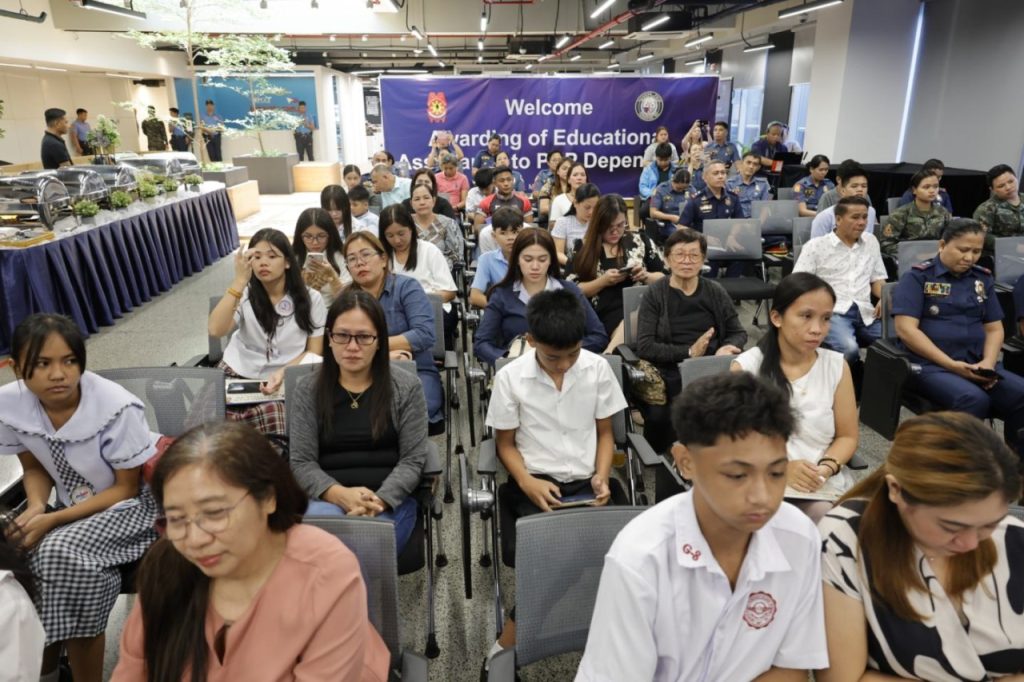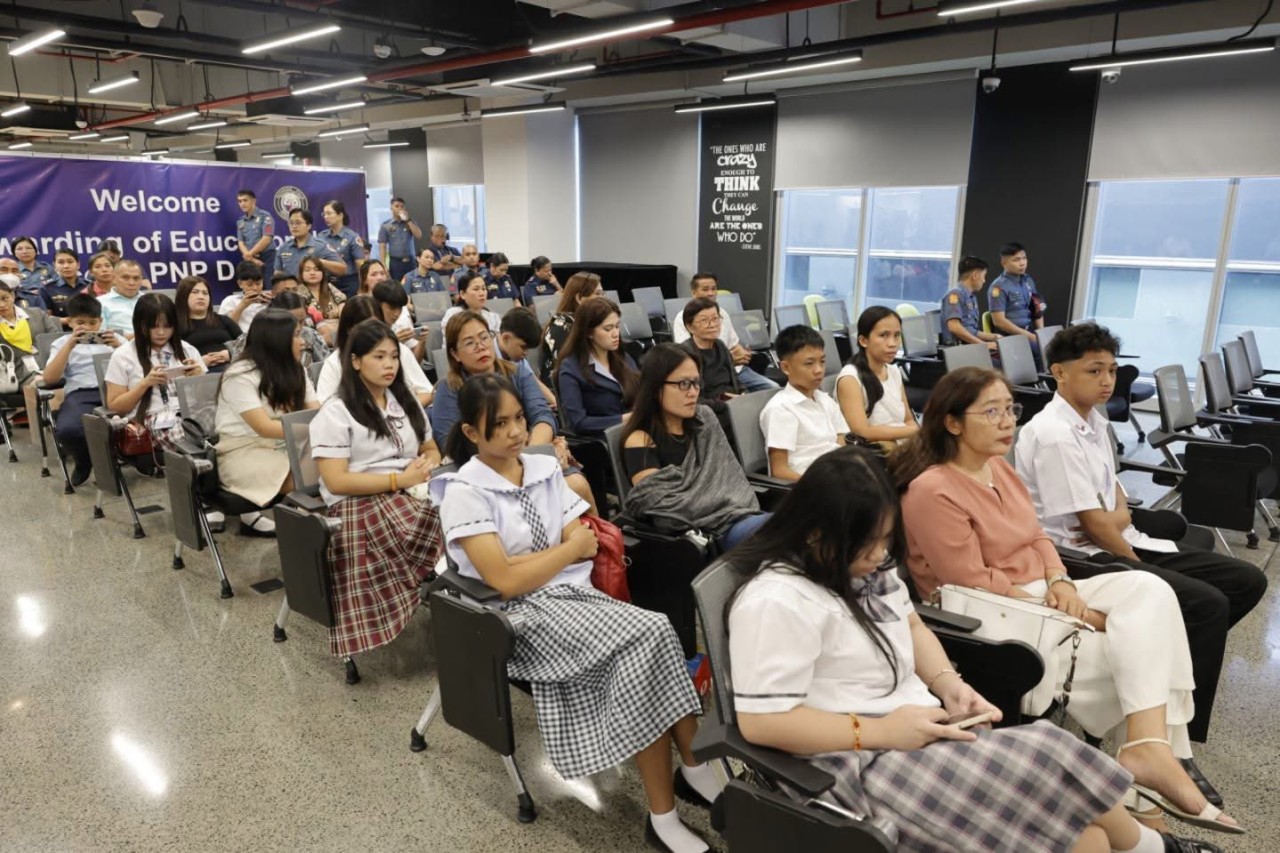The CSBP Educational Assistance is a government-provided benefit under the Comprehensive Social Benefits Program (CSBP) that offers financial support for the schooling of eligible dependents of AFP, PNP, and other uniformed personnel who were killed in action, killed in police operations, or sustained total permanent physical disability while performing legitimate duties. It was institutionalized through Executive Order No. 110, signed in April 2020, to unify and streamline the delivery of social benefits to military and police families in recognition of their service and sacrifice. The educational assistance component of the CSBP is designed to cover up to two qualified beneficiaries per personnel, provided they are not already covered by existing scholarship programs, and is meant to ease the financial burden of education for surviving families. Its main goal is to help these beneficiaries continue their studies, secure better opportunities, and honor the dedication, service, and sacrifice of the uniformed personnel they represent.
If you are a surviving dependent of a KIA/KIPO or WIA/WIPO AFP, PNP, or other covered personnel, this guide to applying for the Educational Assistance under the CSBP can help make it easier for you to take advantage of this benefit designed to honor the sacrifices of our nation’s defenders.
Why This Program Matters

The CSBP educational assistance is more than just financial support—it helps the families of fallen or permanently disabled personnel secure a better future through education. By covering tuition and related expenses for eligible dependents, the program reduces the burden on surviving families and helps them rebuild their lives.
Benefits
Under the CSBP Educational Assistance component, here’s what you can get and how it works:
- Financial support for schooling expenses such as tuition, school fees, and other related educational costs.
- Benefit covers up to two (2) children or other qualified beneficiaries of KIA/KIPO personnel or WIA/WIPO personnel with Total Permanent Physical Disability (TPPD).
- Granted only if the beneficiaries are not already covered by other existing scholarship programs from AFP-EBSO, NAPOLCOM, or the DND-CHED Study Grant Program.
- The exact amount is not fixed in EO 110—it depends on available government funding and the policies of the implementing agencies (DILG, DND, CHED, etc.).
- Amounts may be adjusted, increased, or reduced based on the national budget and recommendations from the agencies handling CSBP.
- Assistance is generally provided per school year and may be released directly to the beneficiary or through the school, depending on the arrangement.
Who Can Avail
The educational assistance component aims to give surviving dependents the opportunity to continue their studies without the burden of educational expenses. This benefit supports dependents or survivors of covered personnel from:
- AFP (including Citizen Armed Force Geographical Unit or CAFGU Active Auxiliary Units)
- PNP
- Bureau of Jail Management and Penology (BJMP)
- Bureau of Fire Protection (BFP)
- Philippine Coast Guard (PCG)
Eligible Beneficiaries Include:
- Legal spouse of a married covered personnel (unless legally separated by judicial decree due to the spouse’s own fault).
- Legitimate, acknowledged, or adopted children, provided they are unmarried and under 21 years old, unless mentally incapacitated.
- Children or other qualified beneficiaries of Killed in Action (KIA) or Killed in Police Operation (KIPO) personnel.
- Children or other qualified beneficiaries of Wounded in Action (WIA) or Wounded in Police Operation (WIPO) personnel with Total Permanent Physical Disability (TPPD).
- Parents of the covered personnel, or if both are deceased, unmarried siblings, grandparents, or grandchild in successive order.
- Other qualified beneficiaries under existing laws, including a live-in partner without legal impediment to marry the covered personnel.
Requirements for Application
Applicants for the Educational Assistance under CSBP must prepare the following:
- Proof of relationship to the covered personnel (e.g., birth certificate, marriage certificate)
- Proof that the covered personnel was KIA/KIPO or WIA/WIPO with TPPD in a legitimate operation
- School enrollment or admission documents of the beneficiary
- Certification that the beneficiary is not covered by other existing scholarship programs (from AFP-EBSO, NAPOLCOM, or DND-CHED)
- Valid government-issued IDs of the applicant and beneficiary
- Other documents as may be required by implementing agencies
How to Apply for the CSBP Educational Assistance
To apply, simply follow these steps:
Step 1. Prepare All Required Documents
Gather the necessary documents proving eligibility and relationship to the covered personnel. Ensure completeness to avoid delays.
Step 2. Submit to the Implementing Agency
Applications are usually processed through the Regional Working Groups (RWGs) led by the DILG and DND. Submissions can be made through any designated processing office or RWG, or local government centers, depending on whether the case involves AFP, PNP, or other uniformed services.
Step 3. Verification and Evaluation
The agency will verify your eligibility, check document authenticity, and confirm that you are not receiving similar scholarship benefits.
Step 4. Approval and Grant of Assistance
Once approved, the educational assistance will be provided as financial support for the beneficiary’s schooling.
Step 5. Continuous Compliance
Maintain good academic standing (if applicable) and submit periodic school records to continue receiving assistance.
Where to Get the Application Form
The application forms are available at any of these channels:
- AFP or PNP Personnel Office: For families of AFP or PNP personnel, the application form can be obtained directly from the personnel administration office handling benefits.
- NAPOLCOM Regional Office: If the beneficiary is under the PNP, forms may also be requested from the nearest NAPOLCOM regional office.
- DILG or DND Regional/Provincial Offices: These lead agencies oversee CSBP implementation and can provide forms and instructions.
- Regional Working Groups (RWG): Local inter-agency teams assigned to process and assist with CSBP benefits at the regional level.
- Official agency websites: Some agencies post downloadable forms (check napolcom.gov.ph and dilg.gov.ph).
Where to Submit Your Application
When you are ready to begin the application, you can submit your requirements and application at the following offices:
- AFP Major Service Headquarters / Unit Command: For AFP-related beneficiaries.
- PNP Directorate for Personnel and Records Management (DPRM): For police-related beneficiaries.
- NAPOLCOM Regional Office: For PNP cases being processed through NAPOLCOM.
- DILG or DND Regional Offices: For cases under their direct coordination.
- Regional Working Groups (RWG): They consolidate, verify, and endorse applications to the appropriate agency.
Implementation and Delivery of Benefits
The CSBP is implemented jointly by the DILG and DND, with coordination among agencies like DepEd, CHED, DOLE, DOH, DTI, DPWH, TESDA, BSP, NHA, PhilHealth, NAPOLCOM, AFP, and PNP.
At the local level, Regional Working Groups (RWGs) handle processing and delivery of benefits to make the program more accessible. This structure helps speed up applications and ensures that support reaches beneficiaries efficiently.
Funding and Sustainability
Funding for the CSBP is sourced from existing appropriations of implementing agencies and other sources identified by the Department of Budget and Management (DBM). Future funding requirements are included in the agencies’ annual budgets to sustain the program.
Where to Learn More
For detailed guidelines and application assistance, beneficiaries can coordinate with:
- AFP or PNP Personnel Office
- NAPOLCOM Regional Office: https://www.napolcom.gov.ph
- DILG: https://www.dilg.gov.ph
- DND: https://www.dnd.gov.ph
